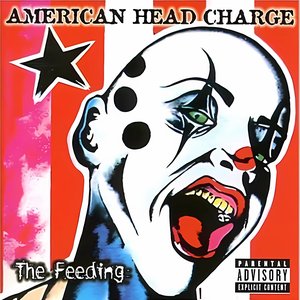Wiki
-
Release Date
31 October 2002
-
Length
13 tracks
The End of All Things to Come is the second studio album from the alternative metal band Mudvayne, released on November 19, 2002. The album is praised for it's all-conceptuality, innovative approach to the sound of the band, making quite a difference since their first and highly-successful release, L.D. 50. However, it didn't receive as good critics as with their first album.
Unknown to most casual listeners, The End of All Things to Come is a concept album. Inside the CD booklet, a symbol of the Zodiac is placed next to each song of the album, with the lyrics for each song matching up to the expected personality of the corresponding Zodiac symbol. The Zodiac signs and their corresponding songs are shown below.
Aries - "The End of All Things to Come"
Taurus - "Trapped in the Wake of a Dream"
Gemini - "Shadow of a Man"
Cancer - "World So Cold"
Leo - "Not Falling"
Virgo - "The Patient Mental"
Libra - "Silenced"
Scorpio - "Skrying"
Sagittarius - "Solve et Coagula"
Capricorn - "(Per)version of a Truth"
Aquarius - "Mercy, Severity"
Pisces - "A Key to Nothing"
The only track that doesn't denote a symbol of the Zodiac is "12:97:24:99." Track 11, consisting of only 11 seconds of silence can be simplified to 11:11. Inside the CD booklet it has the album cover symbol next to it instead of a zodiac symbol. This may represent the concept of non-duality from the Advaita-Vedanta school of thought,in which, it is said that the "truth can only be discovered through silence." All previous tracks can be thought of as comprising everything, or every possible characteristic or manifestation possible within the terms of reality. Thus 12:97:24:99 represents nothing, or that which is beyond all definition or characteristics; the transcendental. The lyrics for this track are written in the Hebrew and translate to:
The sublime destroys the boundaries of finiteness, yet this phenomenon is seen by the self not as an act of destruction, but rather, as a kind of elevation and liberation. For it is on the feeling of infinitude which it now discovers within itself that it may enjoy an experience of its own boundlessness.
The album has many strong influences from Buddhist and Hindu philosophy. Most strongly is the recurring theme of the nature of nothingness, which is similar to the Hindu and Buddhist belief that the material world is an illusion, or Maya. There is a theme on the cyclical nature of time, rebirth, and destruction present throughout as well. The song "Mercy, Severity" in particular has a number of Eastern references: the Yin from the Daoist Yin and Yang, and the line "Mother of destruction wait/With a belt of skulls strap me down" may be referring to the Hindu goddess Kali.
Mudvayne's mystical or the so-called Occult influences can also be heard in "Mercy, Severity". The line "Pain of division is nothing, joy of dissolution is everything" is a quote from Aleister Crowley's The Book of the Law. At one time the band's website also had a link to The Hermetic Order of the Golden Dawn. The Golden Dawn is a well known occult organization with much wealth.
The track name "Solve et Coagula" are the Latin words that appear on the arms of the mythologic demon Baphomet. The word "Solve" means "dissolve", with "Coagula" meaning "congeal".
Album descriptions on Last.fm are editable by everyone. Feel free to contribute!
All user-contributed text on this page is available under the Creative Commons Attribution-ShareAlike License; additional terms may apply.












